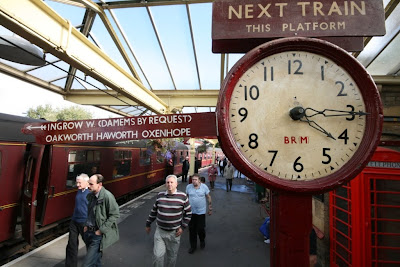1. Its influence on world music; notably during the 60's heydays of the Beatles era and the Merseybeat sound.
2. It has been a pivotal port for the British Empire and its influence on world trade.
3. It has two famous Premier League football teams: red Liverpool and blue Everton.


We have arrived and are now settled in this north-western city of about half a million, and the contrasts of new and old are quite significant.
During the 1800's Liverpool enjoyed a wealth exceeding London's and was described by Disraeli as the "second city of the Empire". It was Britain's port in the infamous triangle of cotton, textiles and slave trading with Africa and America. Stately buildings were constructed that reflected the confidence of the city.
Liverpool was as important as Southampton as exit ports for the millions of poor emigrants who fled Britain to Australia, the US and Canada.


The city went through a steep decline during the 70's and 80's, and today there is evidence of neglect and decay. Once thriving docks now lie empty and derelict. Former mercantile red brick buildings and stores now stand decaying with grass overgrowing their rooves and with smashed windows.

Atop of the imposing Liver (rhymes with diver) Building sits two fabled Liver birds, but they may as well represent a Phoenix rising from the ashes of decay. They watch over a city transforming itself into a modern one keen to attract tourists. The Beatles have been rediscovered and reclaimed and one can hardly walk around town without hearing some Lennon-McCartney classic being played somewhere.


Modern architecture now dominates the Albert Dock and old Mersey waterfront. There is a lot of public and private money pouring in to make this city once again proud. Poorly planned post-war buildings are being razed and replaced with modern stylish buildings of glass and steel with sharp angles.


Liverpool is on the rise again. My next blog may show some images of the remnants of the era of neglect.








